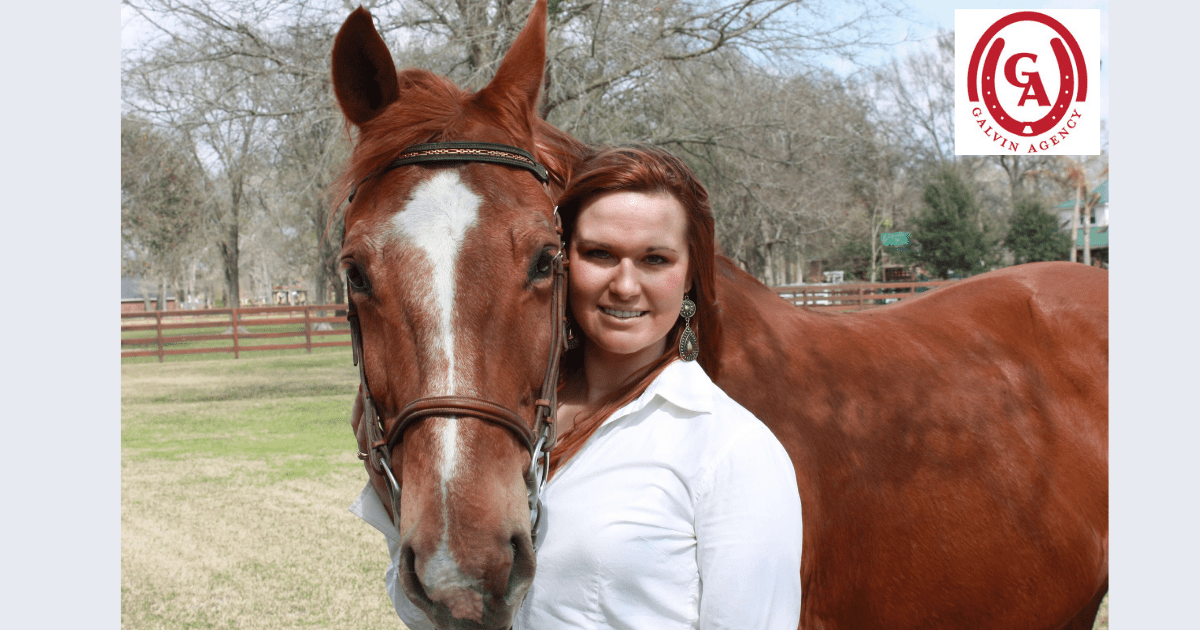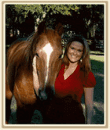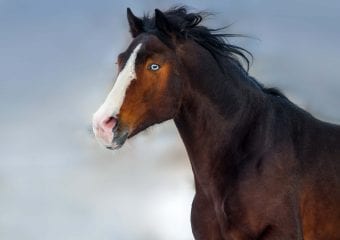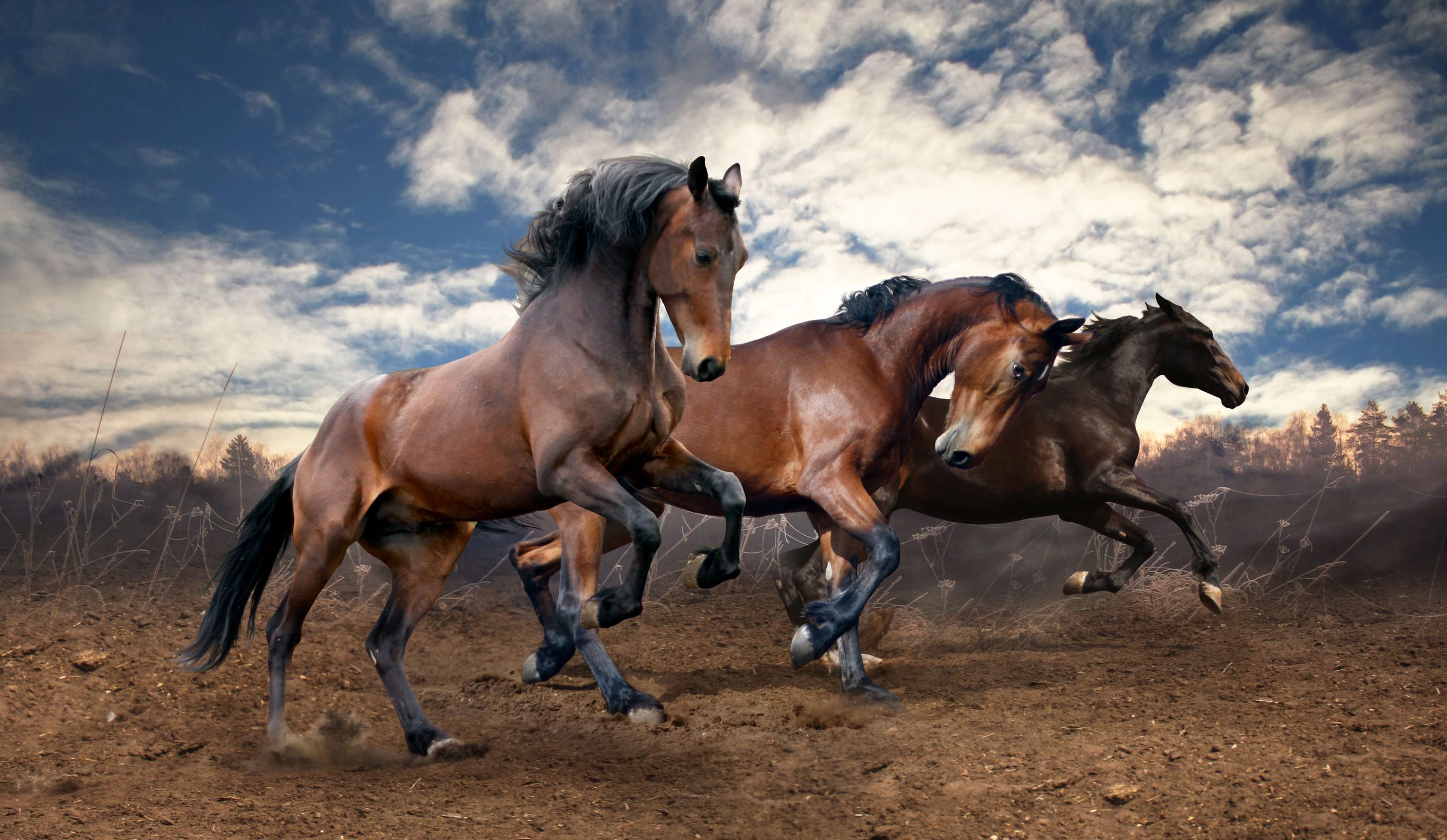by Shannon Galvin of Shannon Galvin Insurance Agency
Hazards are conditions that create or increase the risk (chance) of injury to people, the horse, and property. At equine events in particular, hazards are common. However, if those hazards are well- understood, they can be controlled. Controlling equine hazards reduces the likelihood of injury. Some hazards can easily be eliminated, while others are inherent and must be controlled with reasonable measures based on today’s knowledge and technology.
For example, physical hazards, such as frayed electrical wire, are easy to spot and fix (control). The hazards associated with horses, people, and places are much more difficult to identify and control. This is why it’s so important to have rules and procedures in place. Such rules tend to function best when people understand the purpose behind the rule.
As a horse owner or equine professional, we wanted to help familiarize you with the unique risks and exposures associated with them especially as it relates to events like clinics and shows.
Rules Regarding the Horse Owner
- A horse owner who boards horses with others or lease a horse to others has an obligation to inform them of known propensities, or tendencies toward a certain behavior) of that specific horse.
- Equine Activity Liability Act for the state limits the horse owner/trainer’s liability for inherent risks if they warn according to the law. Be sure that proper signage is posted in accordance to your state’s law (Not all states have this type of law and this law does not negate the responsibility to also carry liability insurance as a horse owner or equine professional).
- Inherent risks are different than propensities in that they are considered to be expected risks that come with working with horses in general, but propensities are specific to a particular horse and not necessarily predictable without prior knowledge of that horse.
- Most standard homeowner’s policies do not cover horse exposures, and if they do it is usually limited to only on-premises. So make sure your agent knows an endorsement needs to be added to cover the liability for your horse, and that it includes off premises exposure if your horse ever leaves your premises or lives at a boarding facility. This is really crucial for traveling to show’s or clinics. If your homeowner’s policy does not have this type of endorsement to add then there are standalone Personal Owned Horses liability policies available. This type of coverage protects you as the horse owner if the owned horse causes property damage or bodily injury to others.
- Equine professionals should be sure to ask about your Care, Custody and Control coverage and does it include transit.
Rules Regarding People
- Create a written training plan with your employees to ensure consistent practices.
- Always require certification and assess skills for contract instructors.
- Develop a written rider assessment method to be reviewed and signed by your students (riders). Use this method to match rider with an appropriate horse to ride in lessons. Riders must also learn tack inspection and fitting in order to personally ensure that the equipment they use is properly adjusted. Insist that all riders wear head protection whenever mounted.
- Inform other trainers, grooms, farriers, veterinarians, and any other associate professionals of a horse’s propensities and specific precautions to take when working with that horse.
- At events, you will have spectators, participants, sponsors, officials, and vendors. People may, on their own, try to observe a horse or attempt to enter confined areas such as stalls or fenced pastures. It’s imperative, therefore, to post clear warnings to try to minimize these risks.
- Be sure to ask for Certificates of Liability Insurance (COI) from clinicians, organizations that are leasing your facility for an event providing their own insurance for the event when you as the property owner are not hosting the event, and vendors setting up to sell their products whether food or other merchandise (if a food vendor that sells alcohol be sure they are also providing proof of liquor liability coverage and proper signage is posted) to show proof of insurance to the facility owner or event organizer. These COI’s should have the property owner listed as additional insured on them as well.
Rules Regarding the Location/Facility
- Try to look for any hazards ahead of time, identify them, and try to control them at your location or facility. Be sure to include hauling horses for clients to include loading, transporting, and unloading from the trailer.
- Create and post facility procedures and rules.
- Design written emergency first aid procedures for people and horses, and train all employees to follow these procedures.
- Develop a written inspection form and perform regular inspections of your facility. Be sure it includes checking that shelters and fencing are properly maintained, checking for and minimizing fire risks like faulty wiring or chemical storage, and any other potential hazards.
- Usually liability coverage for events can be added to your Farm Insurance policy. Your agent will usually need to know the dates of the show, approximate number of horses and spectators attending and if the show is recognized by an association that may need a COI. Keep in mind there is usually no coverage for events under your farm policy unless they are specifically added so be sure to be open and honest with the insurance agent about all activities taking place on premises as well as activities hosted off premises. If liability coverage cannot be provided from your farm policy then there are standalone event policies available in most cases.
Rules regarding Liability and Waivers of Liability
- Always post Equine Activity Liability Act signs.
- Have a lawyer review your contracts and release waivers. Be sure that contracts and waivers include lines for the signature of the minor as well as both parents when a minor is the student or participant.
As a horse owner or equine professional it is easy to see that providing insurance for these types of risks can be complex, which is why we try to stress the importance of working with an insurance agent that specializes in equine-related risks. These specialists will understand the risk better as well as have a better understanding of value of the property needing to be insured to be able to give more educated recommendations in coverage for the horse owner as well as the equine professional. Due to the complex nature of equine risks and the propensity to change often we recommend doing annual insurance reviews with the insurance specialist. Insurance can be daunting to many, but know there are professionals out there that can help you along the way.
Shannon Galvin was born and raised in the Houston, TX area, where she became involved in Hunter/Jumpers at a young age. She received my Bachelors in Animal Science as well as a Masters in Equine Reproduction from Texas A&M University. Her background, experiences and being a part of the Equine Community has helped her determine her career path. She is very proud to say that she chose the Insurance and Financial industry so she could serve the Equine Communities with which she shares a passion.
Contact Top Line Media Team if you would like to be a featured equine professional!




